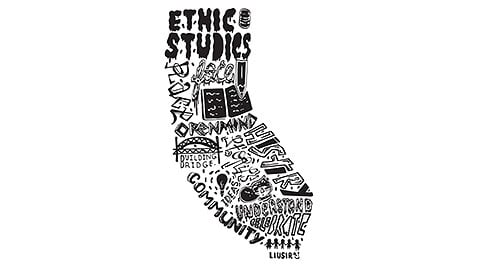California public universities must support faltering ethnic studies programs to combat racial intolerance and foster cultural understanding
In light of the California State Universities’ recent cutbacks within ethnic studies programs, the question of whether ethnic studies is still a viable and integral part of a well-rounded higher education resurfaces. In addition to a now-limited selection of classes, major curricula changes and professor resignations, a 2012 USA Today article explained that UC Santa Cruz and UC Berkeley have removed or reduced funding in their ethnic studies programs, respectively.
The paring back of ethnic studies programs is a worrying nationwide trend, suggesting that far too many universities undervalue the discipline and the subject as a whole, as well as ignoring racism and discrimination still prevalent in society.
Ethnic studies, the interdisciplinary study of race and racialized people in a larger societal context, is particularly focused on how the treatment of historically marginalized people affects social dynamics of the United States. In California public universities in particular, diversity among the student population is key to a successful institution. Ethnic studies programs are crucial to combating intolerance and discriminatory cultural practices and should not be eliminated or scaled down in public universities.
The common argument against ethnic studies states that the courses draw color lines where none existed before. However, this argument is based on the rather naive assumption that racism no longer exists or is much improved from the 1960s, when those studies emerged. A 2013 LA Times article explained that the “the initial intent of the [CSU system’s] programs was to increase the numbers of students and professors of color and expand historical perspectives.” In the face of our increasingly diverse and pluralistic society, opponents argue that the major teaches skills that are no longer applicable.
Yet despite these claims of an equitable society, a June 2013 Guardian UK article reported “the gap between black and white unemployment in the U.S. is roughly the same as it was in 1963.” The numbers suggest that issues regarding race still linger in the United States. Additionally, uproar caused by the recent verdict of the Trayvon Martin case reveals that racism is still an important issue in American society. Given these notable issues, ethnic studies courses are still applicable and necessary in universities. Moreover, the National Education Association addressed this concern directly, finding that “rather than being divisive, ethnic studies helps students to bridge differences that already exist in experiences and perspectives.”
Although the UC system, along with many other public institutions of higher education, stresses the importance of diversity, the actions of a few students reveal that there is still racism and intolerance on campuses. After UCLA’s “Asians in the Library” YouTube video or UCSD’s very own “Compton Cookout,” the Universities of California learned from their mistake and implemented a mandatory ethnic studies graduation requirement with the effort to teach students how to combat racism. These actions helped foster a better community on these campuses.
While the UC system’s commitment to diversity and equal representation in the classroom are the first steps to combating racism, the 2011 National Education Association’s research review on the “Academic and Social Value of Ethnic Studies” explained that just simply having an ethnically or racially diverse population has very little effect on students’ attitudes towards difference “in contrast with curricula that teach directly about racism,” which does. Diversity classes are far more effective at bridging the cultural divide compared to mere racial quotas.
The same review reported “that participation in diversity experiences is ‘significantly and positively related to cognitive development’” because differing views and experiences forces students to think in different and perhaps more productive ways. If higher education’s purpose is to provide and cultivate the next leaders and innovators of America, students attending these universities need to be able to not only think on more complex levels but be tolerant and accepting of those who are different — two issues that ethnic studies courses tackle.
As long as diversity still exists in this country, knowledge of the ways to have intelligent, productive conversations among those with different ethnic histories are vital to producing a nation that is tolerant and non-discriminatory. Public universities should not cut back on ethnic studies programs in order to help combat intolerance on a larger social level.













